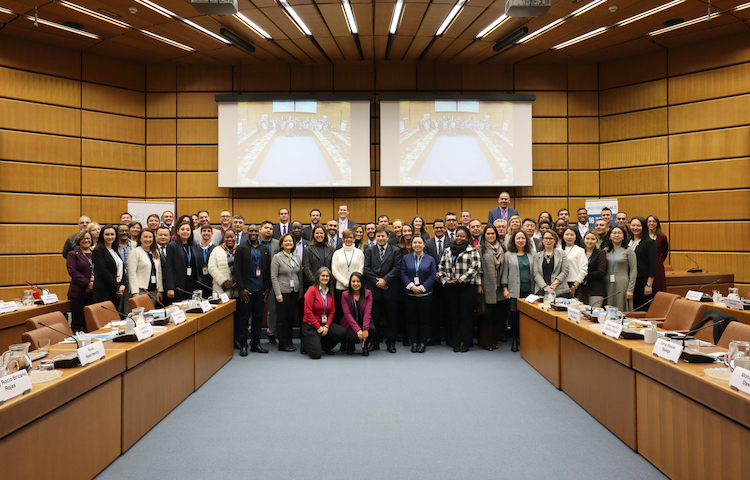By Bernhard Schell
DOHA | VIENNA (IDN | UNIS) —The second high-level meeting of the Global Judicial Integrity Network of the United Nations Office on Drugs and Crime (UNODC) has launched in Doha under the patronage of Sheikh Tamim bin Hamad Al Thani, Emir of Qatar, with hundreds of chief justices and senior judges from around the world in attendance.
Until February 26, the conference will take stock of the achievements of the Network since its launch and discuss existing and emerging challenges related to judicial integrity, exploring the efforts made by judiciaries to address them, and identify priority areas for the Network.
Amongst other issues, dedicated sessions will explore the use of social media by judges, the use of artificial intelligence by judiciaries, and gender-related judicial integrity themes.
In his welcome address to the over 600 participants gathered from 115 countries, Hassan bin Lahdan Alhassan Almohanadi, Chief Justice of the State of Qatar, told participants: “This is an exceptional meeting, one that represents the fact that those participating here are guardians of justice and humanity, conveying a message of trust in them from the international community. The clear and direct message conveyed by the Global Judicial Integrity Network addresses all members of the judiciary around the world, underscoring that we need to treat others as we treat ourselves to make sure that justice is done and the innocent are protected.”
The Chief Justice also used the occasion to announce Qatar’s willingness to finance and establish an international training and research hub on judicial integrity to be set up in Doha. This hub will further support the activities of the Network and strengthen the implementation of UNODC’s Judicial Ethics Training Tools.
John Brandolino, Director of Treaty Affairs at UNODC, spoke of the unparalleled achievements of the Network: “The work that we have collectively carried out within less than two years of the Network’s existence is unprecedented in its scope and reach – we have developed a series of practical guides on emerging judicial integrity issues, implemented a training programme in more than 45 countries, and continued to deepen our ties as a pre-eminent Network for judges worldwide.”
The Network’s purpose is to assist judiciaries in strengthening judicial integrity and preventing corruption in the justice system, including through the promotion of networking opportunities, facilitation of access to resources, and concentration on existing and emerging challenges relating to judicial integrity.
The Global Judicial Integrity Network was launched in April 2018 in Vienna at a high-level event bringing together over 350 participants, including 35 Chief Justices and other senior representatives of judiciaries from over 100 countries and 40 judicial associations. It represented the largest gathering of judges ever organized under the auspices of the United Nations.
The Network is supported through UNODC’s Global Programme for the Implementation of the Doha Declaration, an initiative aimed at promoting a culture of lawfulness and the rule of law.
Meanwhile, the 63rd session of the Commission on Narcotic Drugs (CND) will be held between March 2 and 6 in Vienna.
The opening session will be addressed by Ghada Waly, Executive Director of the UN Office on Drugs and Crime (UNODC), Cornelis de Joncheere, President of the International Narcotics Control Board (INCB) and Tedros Adhanom Ghebreyesus, Director-General of the World Health Organization (WHO) followed by statements by representatives of the regional groups.
Resolutions under consideration by the Commission address topics including strengthening partnerships with the private sector and improving the collection and analysis of data to strengthen evidence-based responses to the world drug problem; involving youth in drug prevention efforts and ensuring the access to and availability of controlled substances for medical and scientific purposes as well as promoting alternative development approaches to illegal crop cultivation.
The 63rd Session is expected to bring together around 2,000 participants from Member States, parliaments, inter-governmental organizations, civil society, and the scientific community.
More than 100 side events will take place during the 63rd session of the CND on topics ranging from generation equality to prevention, treatment and care of people with drug use disorders involving communities and families; countering synthetic drug threats; the fight against drug trafficking; alternative development for sustainable livelihoods; research and data on drug supply and trafficking and youth participation in drug use prevention. [IDN-InDepthNews – 25 February 2020]
Photo credit: UNODC
IDN is flagship agency of the International Press Syndicate.
facebook.com/IDN.GoingDeeper – twitter.com/InDepthNews

